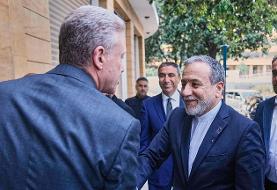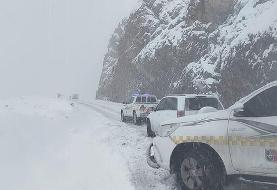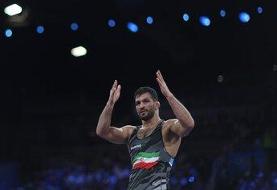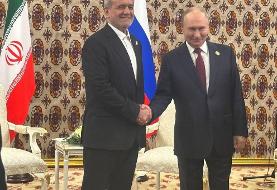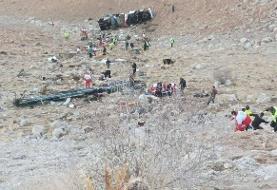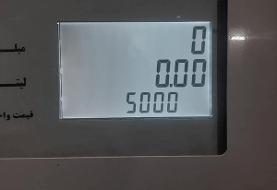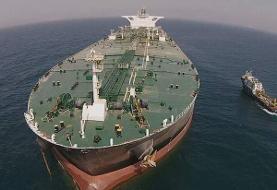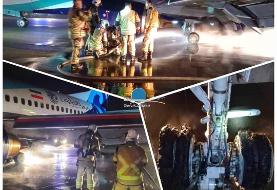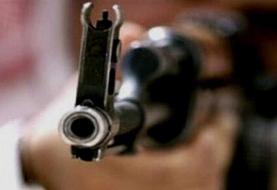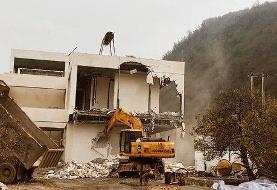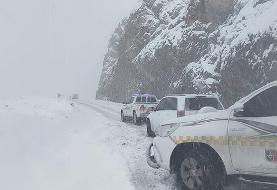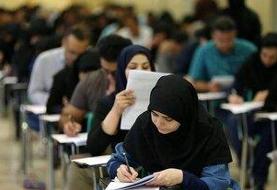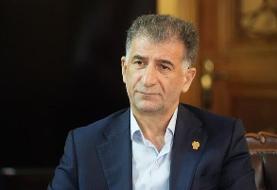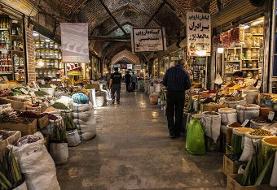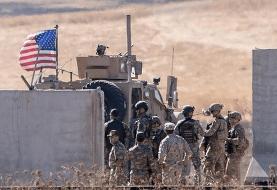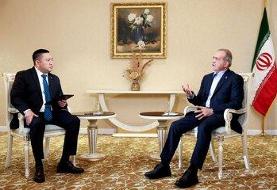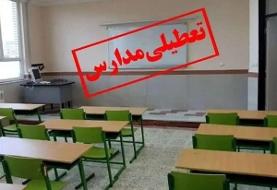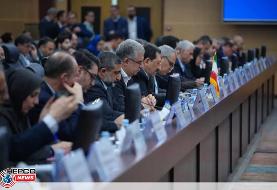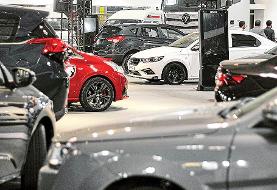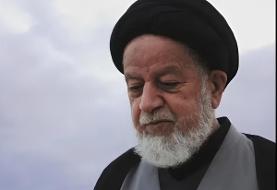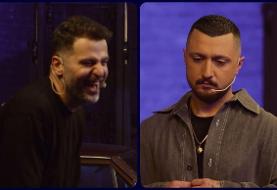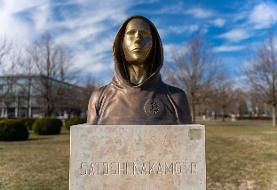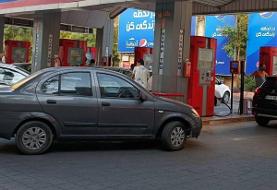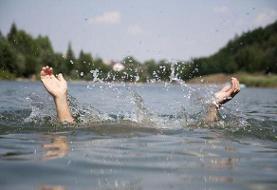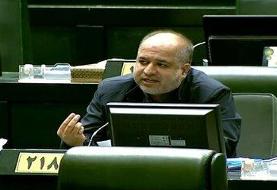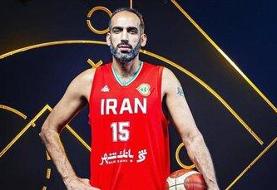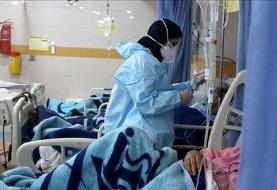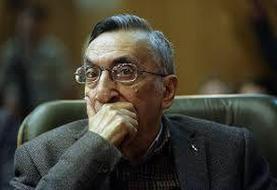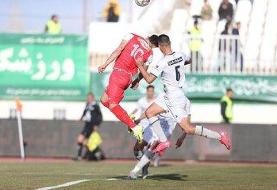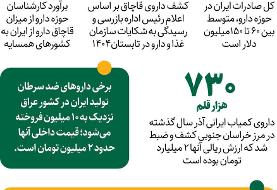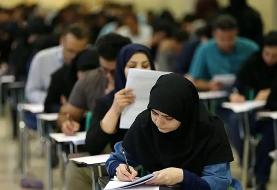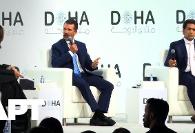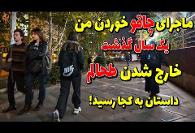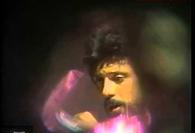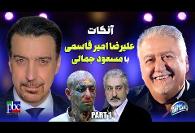عباس کیارستمی
اخبار و مقالات
 لیلا حاتمی در فهرست ۲۵ بازیگر زن برتر قرن قرار گرفت
لیلا حاتمی در فهرست ۲۵ بازیگر زن برتر قرن قرار گرفت
 فیلمهای ایرانی در جشنواره امسال فیلم ونکوور، از ...
فیلمهای ایرانی در جشنواره امسال فیلم ونکوور، از ...
 دعوت اسکار از ۹ بازیگر، کارگردان و نویسنده ایرانی برای ...
دعوت اسکار از ۹ بازیگر، کارگردان و نویسنده ایرانی برای ...
 ویدئوی سخنرانی سیاسی فرهادی و سایر حواشی مراسم تشییع ...
ویدئوی سخنرانی سیاسی فرهادی و سایر حواشی مراسم تشییع ...
 این تصویر لیلا حاتمی در جشنواره کن برای او در ایران ...
این تصویر لیلا حاتمی در جشنواره کن برای او در ایران ...
عباس کیارستمی (متولد ۱ تیر ۱۳۱۹ ،تهران ،ایران) فیلمنامهنویس، تهیهکننده و کارگردان بینالمللی و تحسین شده سینمای ایران است که آثار وی اغلب با استقبال فراوان منتقدان رو به رو شده است. کیارستمی از سال ۱۹۷۰ میلادی در عرصه سینما فعالیت میکند و تاکنون بیش از ۴۰ فیلم سینمایی، کوتاه یا مستند را ساخته، نوشته، یا تهیه کرده است. از مهمترین آثار وی میتوان به سهگانه زلزله، طعم گیلاس و باد ما را خواهد برد اشاره کرد.
کیارستمی علاوه بر سینما در عرصههای دیگر هنری از جمله شعر، عکاسی، چیدمان، موسیقی، طراحی گرافیک و طراحی نیز فعال است. او را باید در زمره سینماگران موسوم به موج نوی سینما در ایران به شمار آورد. سادگی، استفاده از کودکان به عنوان نقش اول و قهرمان داستان، سبک مستندگونه، بهرهگیری از فضاهای روستایی، حذف کارگردان، شاعرانگی و نیز مکالمه شخصیتها در خودرو برخی از ویژگیهای فیلمهای کیارستمی است.
زندگی
کیارستمی در سال ۱۳۱۹ متولّد شد. او دارای لیسانس نقاشی از دانشکده هنرهای زیبا دانشگاه تهران است. عباس کیارستمی از سال ۱۳۴۰ به عنوان نقاش تبلیغاتی در «آتلیه ۷» و یکی دو مؤسسهٔ دیگر به کار طراحی جلد کتاب و آفیش پرداخت، و بعدها به «تبلی فیلم» رفت. از سال ۱۳۴۶ در «سازمان تبلیغاتی نگاره» به طراحی و ساختن تیتراژ فیلم پرداخت که نخستین آنها تیتراژ فیلم «وسوسهٔ شیطان» ساختهٔ محمد زرین دست بود.
طراحی پوستر و ساخت تیتراژ فیلمهای قیصر و رضا موتوری ساختهٔ مسعود کیمیایی را او انجام داد. مدتی بعد به دعوت فیروز شیروانلو، که مسئولیت «امور سینمایی کانون پرورش فکری کودکان و نوجوانان» را داشت به «کانون» رفت و در سال ۱۳۴۹ فیلم کوتاه نان و کوچه را ساخت. در سال ۱۳۵۱ فیلم زنگ تفریح را ساخت و با ساخت فیلم «مسافر» در سال ۱۳۵۳ مطرح شد. او در سینمای بعد از انقلاب پایهگذار سینمایی شد که تا به حال فیلمسازان زیادی پیرو این نوع سینما، فیلم ساخته و مطرح شدهاند. عباس کیارستمی با فیلم طعم گیلاس در سال ۱۹۹۷ جایزه نخل طلای جشنواره فیلم کن را هم از آن خود کردهاست.
وی دارای مدرک تحصیلی لیسانس در رشته نقاشی از دانشکده هنرهای زیبای دانشگاه تهران است او با طراحی پوستر و ساخت تیتراژ برای چند فیلم مهم از جمله قیصر و رضا موتوری به سینما راه یافت و با ساخت فیلم مسافر مطرح شد.
دیگر فعالیتها
کیارستمی تجربههای متفاوتی در زمینههای مختلف نظیر آهنگسازی ،طراحی صحنه و لباس ، تدوین و حتی بازیگری داشته است ،وی همچنین عکاسی شناخته شده است همچنین به تازگی دو کتاب از ادبیات کلاسیک ایران به نامهای حافظ به روایت عباس کیارستمی و سعدی از دست خویشتن فریاد را منتشر ساخته است.
در حراجی کریستی دبی به تاریخ ۱ مه ۲۰۰۸، عکسی از کلکسیون عکسهای عباس کیارستمی به قیمت حدود ۱۳۰ هزار دلار فروخته شد.
موانع و مشکلات
سانسور
مارتین اسکورسیزی با ذکر تلاش فراوان دولت ایران برای سانسور فیلم ده از این موضوع انتقادکرد و گفت که سانسور هیچ گاه خوب نخواهد بود. در سال ۱۹۷۷ میلادی وزارت آموزش وپرورش وقت خواستار آن شد که قسمتی از فیلم کیارستمی که زنان به صورت محجبه بودند حذف شود با مخالفت کیارستمی با این حذف، از نمایش فیلم جلوگیری شد پس از انقلاب ۱۳۵۷ نیز صحنه های دوباره گرفته شده بدون حجاب فیلم به نمایش در نیامد.
خودداری از صدور روادید
در سال ۲۰۰۲ دولت آمریکا از صدور روادید برای کیارستمی به منظور شرکت در فستیوال فیلم نیویورک خودداری کرد علت این اقدام قوانین سخت گیرانه ضد تروریستی دولت آمریکا پس از حملات ۱۱ سپتامبر بود که زمان زیادی صرف بررسی اطلاعات افراد از کشورهای مظنون به تروریسم می شد. در بهار سال ۲۰۰۹ هم قرار بود کیارستمی برای کارگردانی اثری از موتسارت به اپرای ملی انگلیس در لندن برود اما سه هفته مانده به شروع این نمایش، در اعتراض به رفتار غيرمحترمانه کارکنان سفارت انگليس و روند پیچیده اخذ ويزا، از کارگرداني کنار کشيد.

فیلمشناسی
کارگردان
- نان و کوچه
- زنگ تفریح
- مسافر (۱۳۵۳)
- گزارش (۱۳۵۶)
- اولیها (۱۳۶۳)
- خانه دوست کجاست؟ (۱۳۶۵)
- مشق شب (۱۳۶۷)
- کلوزآپ (۱۳۶۸)
- زندگی و دیگر هیچ (۱۳۷۰)
- زیر درختان زیتون (۱۳۷۲)
- طعم گیلاس (۱۳۷۶)
- باد ما را خواهد برد (۱۳۷۸)
- آ. ب. ث. آفریقا (۱۳۷۹)
- ده (۱۳۸۰)
- پنج (۱۳۸۲)
- بلیت (۱۳۸۳)
- جادهها (۱۳۸۴)
- شیرین (۲۰۰۸) میلادی
نویسنده
- گزارش (۱۳۵۶)
- اولیها (۱۳۶۳)
- کلید (۱۳۶۴)
- خانه دوست کجاست؟ (۱۳۶۵)
- کلوزآپ (۱۳۶۸)
- زندگی و دیگر هیچ (۱۳۷۰)
- مسافر (۱۳۷۲)
- زیر درختان زیتون (۱۳۷۲)
- سفر (۱۳۷۳)
- بادکنک سفید (۱۳۷۳)
- طعم گیلاس (۱۳۷۶)
- بید و باد (۱۳۷۷)
- باد ما را خواهد برد (۱۳۷۸)
- طلای سرخ (۱۳۸۲)
- بلیت (۱۳۸۳)
- جادهها (۱۳۸۴)
جوایز
- جایزه ویژه هیات داوران جشنواره بینالمللی فیلمهای کودکان و نوجوانان تهران ۱۹۷۰
- جایزه اول بخش روایی چهارمین جشنواره بینالمللی فیلم جیفونی ایتالیا برای فیلم تجربه ۱۹۷۴
- جایزه ویژه هیات داوران نهمین جشنواره بینالمللی فیلم کودکان و نوجوانان تهران برای فیلم مسافر ۱۹۷۴
- جایزه تلویزیون ملی ایران در نهمین جشنواره بینالمللی فیلم کودکان و نوجوانان تهران برای فیلم مسافر ۱۹۷۴
- دیپلم افتخار منتقدان، یازدهمین جشنواره بینالمللی فیلم کودکان و نوجوانان تهران برای فیلم لباسی برای عروسی ۱۹۷۶
- جایزه اول جشنواره فیلمهای آموزشی مکزیکو برای فیلم دو راه حل برای یک مسئله ۱۹۷۶
- نامزد نخل طلایی جشنواره کن برای فیلم زیر درختان زیتون ۱۹۹۴
- برنده نخل طلایی جشنواره کن برای فیلم طعم گیلاس ۱۹۹۷
- نامزد شیر طلایی جشنواره ونیز برای فیلم باد ما را خواهد برد ۱۹۹۹
- برنده جایزه ویژه هیئت داوران جشنواره ونیز برای فیلم باد ما را خواهد برد ۱۹۹۹
- نامزد نخل طلایی جشنواره کن برای فیلم ده ۲۰۰۲
Abbas Kiarostami (born 22 June 1940) is an internationally acclaimed Iranian film director, screenwriter, and film producer.An active filmmaker since 1970, Kiarostami has been involved in over forty films, including shorts and documentaries. Kiarostami attained critical acclaim for directing the Koker trilogy, A Taste of Cherry, and The Wind Will Carry Us.

Kiarostami has worked extensively as a screenwriter, film editor, art director and producer and has designed credit titles and publicity material. He is also a poet, photographer, painter, illustrator, and graphic designer.
Kiarostami is part of a generation of filmmakers in the Iranian New Wave, a Persian cinema movement that started in the late 1960s and includes pioneering directors such as Forough Farrokhzad, Sohrab Shahid Saless, Bahram Beizai, and Parviz Kimiavi. The filmmakers share many common techniques including the use of poetic dialogue and allegorical storytelling dealing with political and philosophical issues.
Kiarostami has a reputation for using child protagonists, for documentary style narrative films, for stories that take place in rural villages, and for conversations that unfold inside cars, using stationary mounted cameras. He is also known for his use of contemporary Iranian poetry in the dialogue, titles, and themes of his films.
Early Life and Background
Kiarostami was born in Tehran. His first artistic experience was painting, which he continued into his late teens, winning a painting competition at the age of eighteen shortly before he left home to study at the Tehran University School of Fine Arts. There he majored in painting and graphic design, and supported his degree by working as a traffic policeman. As a painter, designer, and illustrator, Kiarostami worked in advertising in the 1960s, designing posters and creating commercials. Between 1962 and 1966, he shot around 150 advertisements for Iranian television. Towards the late 1960s, he began creating credit titles for films (including Gheysar by Masoud Kimiai) and illustrating children's books.
In 1969, Abbas married Parvin Amir-Gholi but later divorced her in 1982. They had two sons from the marriage; Ahmad born in 1971 and Bahman in 1978 respectively. At the age of fifteen, Bahman Kiarostami became a director and cinematographer by directing a documentary Journey to the Land of the Traveller in 1993.
Kiarostami remained in Iran after the 1979 revolution, when many of his fellow Iranian filmmakers and directors fled to the west, and he believes that it was one of the most important decisions of his career. He has stated that his permanent base in Iran and his national identity have consolidated his ability as a filmmaker:
When you take a tree that is rooted in the ground, and transfer it from one place to another, the tree will no longer bear fruit. And if it does, the fruit will not be as good as it was in its original place. This is a rule of nature. I think if I had left my country, I would be the same as the tree. -Abbas Kiarostami
Because of his residency in Iran he has faced travel limitations and visa problems. In 2002, he was denied a U.S. visa to attend New York Film Festival. In 2009, he was invited to produce Mozart's Così fan tutte for the prestigious English National Opera (ENO) but in May 2009, and only a few weeks before the start date, the British Embassy in Tehran had not issued a visa to Mr. Kiarostami, and in protest to the illogical visa process and disrespectful treatment of Iranian citizens by British Embassy, Mr. Kiarostami resigned from directing.
Kiarostami frequently appears wearing dark-lensed spectacles or sunglasses. He wears them for medical reasons due to a sensitivity to light.
In 2000, at the San Francisco Film Festival award ceremony, Kiarostami surprised everyone by giving away his Akira Kurosawa Prize for lifetime achievement in directing to veteran Iranian actor Behrooz Vossoughi for his contribution to Iranian Cinema.
Honors and Awards
Kiarostami accepting a lifetime achievement award from Martin Scorsese in Marrakech International Film Festival.
Kiarostami has won the admiration of audiences and critics worldwide and received at least seventy awards up to the year 2000. Here are some representatives:
- Prix Roberto Rossellini (1992)
- Prix Cine Decouvertes (1992)
- François Truffaut Award (1993)
- Pier Paolo Pasolini Award (1995)
- Federico Fellini Gold Medal, UNESCO (1997)
- Palme d'Or, Cannes Festival (1997)
- Honorary Golden Alexander Prize, Greece (1999)
- Silver Lion, Venice Film Festival (1999)
- Akira Kurosawa Award (2000)
- Honorary doctorate, École Normale Supérieure (2003)
- Konrad Wolf Prize (2003)
- President of the Jury for Caméra d'Or Award, Cannes Festival (2005)
- Fellowship of the British Film Institute (2005)
- Gold Leopard of Honor, Locarno film festival (2005)
- Prix Henri-Langlois Prize (2006)
- Honorary doctorate, University of Toulouse (2007)
- World's great masters, Kolkata International Film Festival (2007)
- Glory to the Filmmaker Award, Venice Film Festival (2008)
- Cup of Jamshid Award (2008)

Filmography
- 1970 The Bread and Alley
- 1972 Breaktime
- 1973 The Experience
- 1974 The Traveller
- 1975 So Can I
- 1975 Two Solutions for One Problem
- 1976 Colors
- 1976 A Wedding Suit
- 1977 How to Make Use of Leisure Time: Painting
- 1977 The Report
- 1977 Tribute to the Teachers
- 1978 Solution
- 1979 First Case, Second Case
- 1980 Dental Hygiene
- 1981 Orderly or Disorderly
- 1982 The Chorus
- 1983 Fellow Citizen
- 1983 Toothache
- 1984 First Graders
- 1987 Where Is the Friend's Home
- 1987 The Key
- 1989 Homework
- 1990 Close-Up
- 1991 Life, and Nothing More...
- 1993 Journey to the Land of the Traveller
- 1994 Through the Olive Trees
- 1994 The Journey
- 1995 The White Balloon
- 1995 A propos de Nice, la suite
- 1996 Lumiere and Company
- 1997 The Birth of Light
- 1997 Taste of Cherry
- 1999 The Wind Will Carry Us
- 1999 Willow and Wind
- 2001 ABC Africa
- 2002 Ten
- 2002 The Deserted Station
- 2003 Crimson Gold
- 2003 Five
- 2003 Ten Minutes Older
- 2004 10 on Ten
- 2005 The Roads of Kiarostami
- 2005 Tickets
- 2007 Kojast jaye residan
- 2007 Chacun son cinema
- 2008 Certified Copy
Books
- Abbas Kiarostami, Abbas Kiarostami: Cahiers du Cinema Livres (24 October 1997)
- Abbas Kiarostami, Walking with the Wind (Voices and Visions in Film): English translation by Ahmad Karimi-Hakkak and Michael C. Beard, Harvard Film Archive; Bilingual edition (28 February 2002).
- Abbas Kiarostami, 10 (ten): Cahiers du Cinema Livres (5 September 2002).
- Abbas Kiarostami, Nahal Tajadod and Jean-Claude Carrière Avec le vent: P.O.L. (5 May 2002).
- Abbas Kiarostami, Le vent nous emportera: Cahiers du Cinema Livres (5 September 2002).
- Abbas Kiarostami, La Lettre du Cinema: P.O.L. (12 December 1997).

















